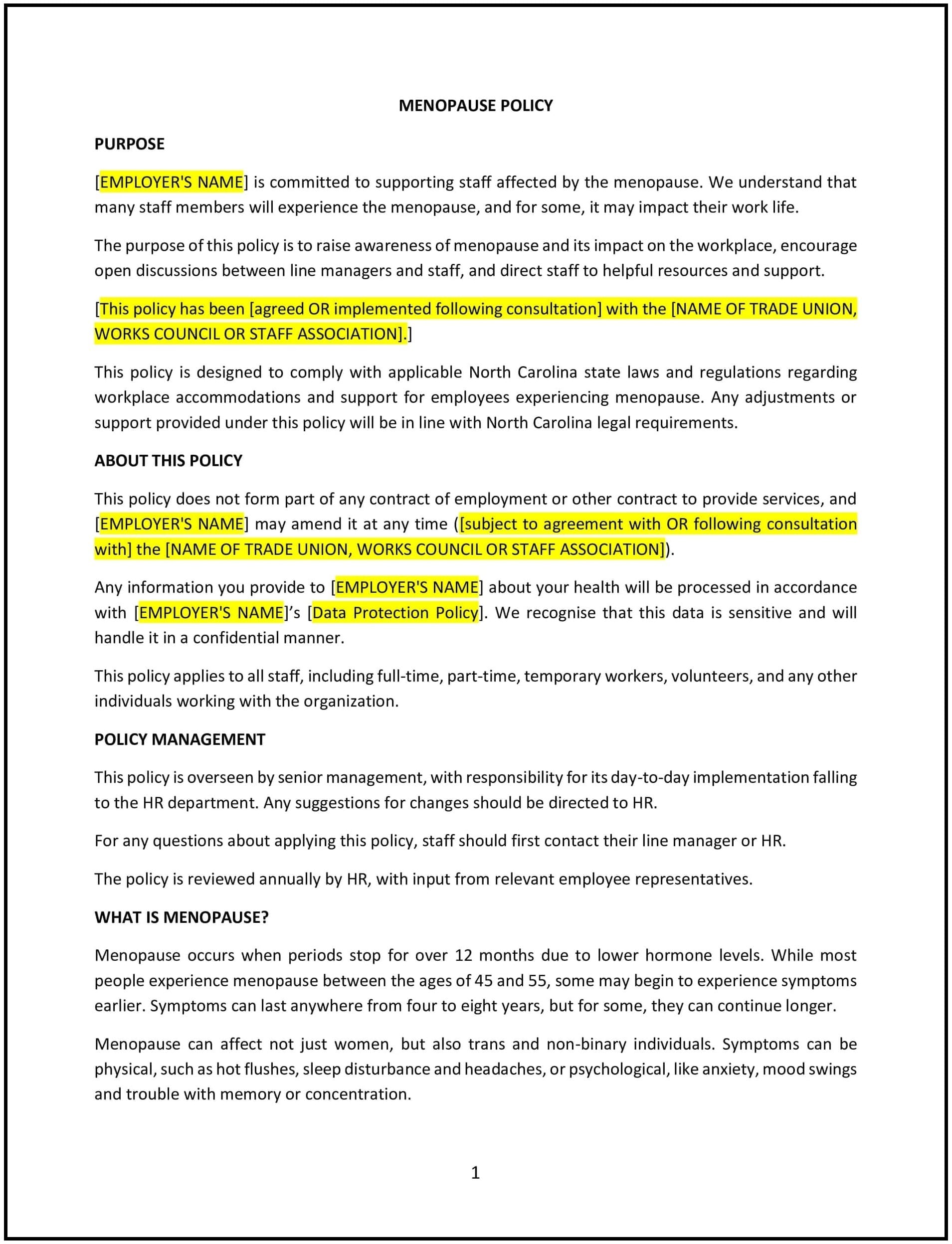Got contracts to review? While you're here for policies, let Cobrief make contract review effortless—start your free review now.

Customize this template for free
Menopause policy (North Carolina)
A menopause policy helps North Carolina businesses support employees who are experiencing menopause symptoms, offering guidance on workplace accommodations, health support, and creating an inclusive environment. This policy ensures that employees dealing with menopause are treated with respect and dignity and have access to the support they need to continue their work effectively during this stage of life.
By adopting this policy, businesses can foster an inclusive culture that acknowledges and accommodates employees’ health needs, improving employee well-being and productivity.
How to use this menopause policy (North Carolina)
- Define menopause: Clearly define menopause, perimenopause, and postmenopause, and explain how these stages can affect employees’ health and well-being.
- Outline accommodations: Specify the types of workplace accommodations available to employees experiencing menopause symptoms, such as flexible work hours, a comfortable work environment, or adjusted duties.
- Provide support: Offer information about health resources or employee assistance programs (EAPs) that can provide additional support to employees dealing with menopause.
- Foster a supportive environment: Encourage open communication between managers and employees regarding menopause and ensure that employees feel safe discussing their health needs without fear of discrimination or stigma.
- Reflect North Carolina-specific considerations: Ensure the policy complies with North Carolina’s workplace discrimination and health regulations, including any legal protections for employees experiencing menopause-related health issues.
Benefits of using this menopause policy (North Carolina)
This policy provides several benefits for North Carolina businesses:
- Improves employee well-being: Supporting employees through menopause helps them manage symptoms effectively, reducing stress and increasing job satisfaction.
- Enhances inclusivity: The policy demonstrates a commitment to inclusivity and employee health, fostering a supportive work environment for all employees.
- Reduces absenteeism: By providing accommodations and support, businesses can reduce the likelihood of employees taking extended leave due to menopause symptoms.
- Builds a positive company reputation: Companies that adopt inclusive policies attract and retain top talent by showing they value the health and well-being of their employees.
- Promotes work-life balance: Offering accommodations for menopause helps employees balance their health needs with their work responsibilities, improving overall productivity.
Tips for using this menopause policy (North Carolina)
- Communicate the policy clearly: Ensure all employees are aware of the menopause policy and the accommodations available to them.
- Offer training: Provide training for managers on how to recognize symptoms of menopause and how to offer support and accommodations without stigma.
- Monitor employee needs: Regularly check in with employees experiencing menopause to ensure their needs are being met and that accommodations are effective.
- Review the policy regularly: The policy should be reviewed annually to ensure it is aligned with North Carolina laws and the evolving needs of employees.